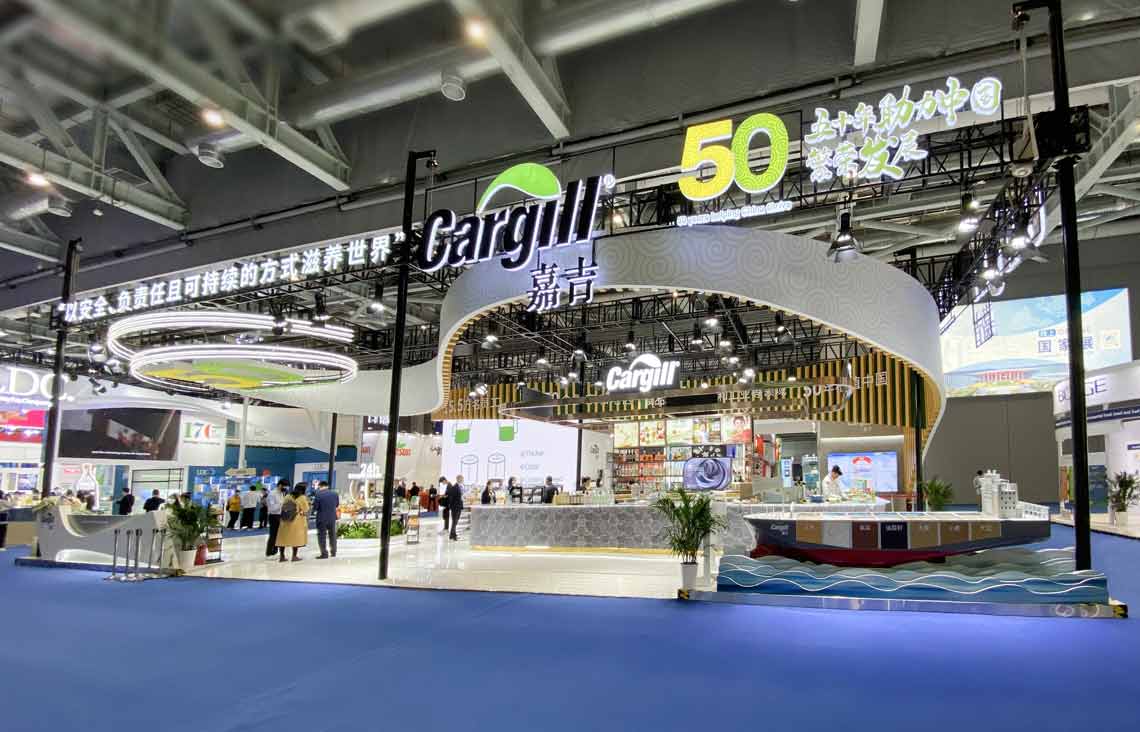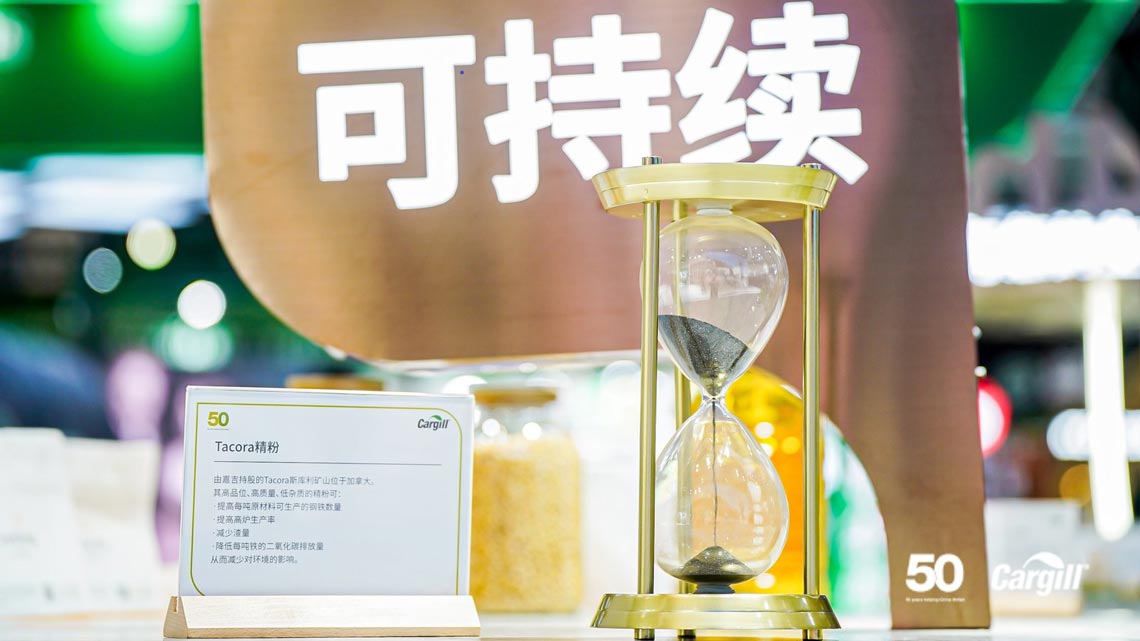Exclusive Feature of Cargill Metals at CIIE
Strive for decarbonization partnership
November 10th 2021
*This article was originally published on The Paper (one of the leading integrated news portals that reports broadly on China’s politics and businesses.)
"The world is counting down to carbon neutrality and China is committed to decarbonization by 2060. We are naturally seeing significant interest in this specific material." During the 4th China International Import Expo (CIIE), Paul Ruston, Director of China Iron Ore and Steel, Cargill Metals, accepted an exclusive interview with The Paper* and introduced a high-grade iron ore that exhibited at CIIE, "Cargill's metal business has been delivering the product to our steel mill partners in China for around two years."

Paul Ruston
Director, China Iron Ore and Steel, Cargill Metals
This is the first time Cargill Metals presented at CIIE, while Cargill has attended for the fourth consecutive times. Founded in 1865, Cargill is headquartered in Minnesota, USA, providing services in a diverse range of food, agriculture, industrial and financial sectors. Its business covers 70 countries, with around 155,000 employees around the world.
 Cargill’s Booth in CIIE
Cargill’s Booth in CIIE
Cargill has a 156 year history of helping customers navigate complex commodity chains and has been operating in ferrous for over 40 years. Leveraging Cargill’s established global network and hubs, Cargill Metals has been operating across over 25 ports and more than 50 warehouses globally, providing physical and financial solutions to over 2,500 customers in 40 countries.
"We provide a broad range of services from technical marketing to customized risk management solutions along the supply chain from miners to end users of steel." Mr. Ruston mentioned that each year Cargill Metals move around 50 million tons of physical iron ore and 6 million tons of physical steel globally.
Tacora Premium Concentrate (TPC) was displayed at Cargill's booth in CIIE, which is a high-grade iron ore concentrate with low impurities mined from Canada. It has significant cost and environmental benefits in steel production as it can greatly reduce fuel consumption and thus lower CO2 emissions per tonne of steel produced. Cargill Metals has the exclusive marketing rights to TPC. During the CIIE, Cargill Metals signed additional volume commitments with customers including Angang Group Int’l Panzhihua Co., Ltd. and SHOUGANG CHANGZHI Iron & Steel Co., Ltd.
 Tacora Premium Concentrate
Displayed in Count-down to Carbon Neutrality Sand Clock at Cargill’s Booth in CIIE
Tacora Premium Concentrate
Displayed in Count-down to Carbon Neutrality Sand Clock at Cargill’s Booth in CIIE
Mr. Ruston added: "For Cargill Metals, it is about more than just marketing tons efficiently. We want to partner the steel industry in the decarbonization transformation journey both here in China and around the world, focusing on value-adding services and solutions along the global ferrous supply chain." He believes that Cargill Metals has unique technical understanding of steel mills operational philosophies and attributes of different iron ore products from across the globe. "We are tailoring integrated raw materials solutions to improve the overall operation cost of steel mills while supporting our customers to meet their sustainability targets."
Cargill started its involvement in the China ferrous markets in 1995, and then in 2009, Cargill began onshore trading of steel in China. In 2016 Cargill Metals moved its trading headquarters from Singapore to Shanghai. "This was a significant move at the time with many of our global competitors still today trying to manage China from somewhere else. We believe that if you want to partner with the local industry and with Chinese steel companies, you not only have to be present on the ground in China but you need key decisions being made locally too. This has been crucial for us in developing those close relationships and building the deep trust that you need to create real partnerships." Mr. Ruston said.
It is worth noting that, as a major steel producer, China relies on imports for more than 80% of the iron ore as the main raw material, while Australia and Brazil are the main importers for China. In 2020, China's iron ore imports reached a record high, which exceeded 1.1 billion tons. In fact, both the supply and price of iron ore have a profound impact on China's steel industrial chain.
However, since the second half of this year, the rising iron ore prices have begun to reverse and fall. "We have seen the China government getting very serious about reducing steel production to reduce its CO2 emissions." according Mr. Ruston, "less steel production has required less iron ore, hence the pull back in prices."
Mr. Ruston said, Cargill Metals is witness to the development of China's steel industry in the past 2 decades, growing from a country lack of iron ore raw materials to one that produces 2/3 of the world's steel and consumes around 60% seaborne iron ore globally. "The transformation to carbon neutrality, and the pace this moves at, has the potential to disrupt many of the current market dynamics."
He believes that supply chain complexity is also likely to increase as new technologies are developed and scaled, with many old practices falling away. "The winners in the market will be the ones who understand what the industry needs and can deliver the right solutions and options for them."
